University ragging in Thailand
The scariest thing a Thai high school student faces is the worry of not passing their exams and getting into their dream universities.
But once that hurdle passes, the real “nightmare” begins: orientation rituals. Thai universities are no strangers to negative stereotypes that surround this tradition – stereotypes that stem from a horrifying place of truth.
There have been reports of aggression and abuse that have led to students literally being hazed to death – even after orientation ends. Take 19-year-old Phornphiphat “Mint” Eaddam, who died last month after she was forced to run laps as part of a punishment from her seniors during cheerleading practice at Phuket Rajabhat University.
Having gone through the system myself, I was terrified as a freshie (freshman) going into it for the first time. Thankfully, my friends and I experienced “ragging” that didn’t cross the line. And though we got out of it with good memories and strong friendships, not everyone has been so lucky.
SOTUS in Thai universities

Hierarchy is rife amid the student body in universities, where seniority takes precedence when it comes to earning respect. Everyone is expected to follow the ‘SOTUS’ code of conduct: Seniority, Order, Tradition, Unity, and Spirit.
The purpose of SOTUS is to hone a sense of unity and regularity amongst freshies to help them settle into the school better. However, what aims to promote harmony and camaraderie can quickly turn into a humiliating ritual for newbies, who are often coerced into participation.
Known as rab nong in Thai, orientation activities can range from lighthearted events such as mass dances and mingling with strangers, to actions that lead to dire consequences, like being forced to do physical activities or even getting beaten up by seniors in the name of “tradition”.
My 6-weeks as a freshman during orientation
Fortunately, though my university had the concept of SOTUS ingrained amongst students, it was not as hostile as it is in many schools around Thailand.
For starters, freshies were able to decide for themselves if they wanted to join the planned activities or not. Although I was hesitant due to the rumours I’d heard about initiations, I decided to take part in everything as I felt that it was going to be a once in a lifetime opportunity.
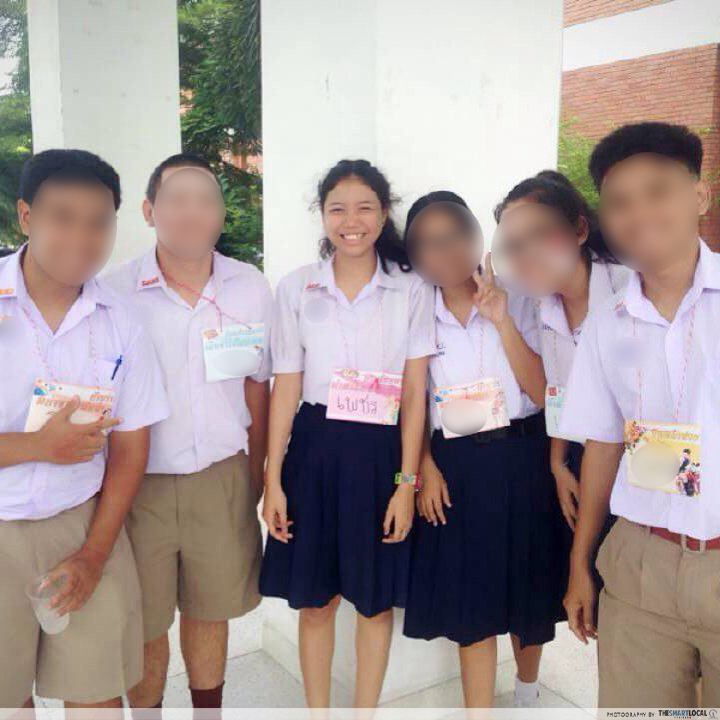
The first day of university
The first day of my uni journey wasn’t as scary as I’d imagined. The seniors I met were warm and friendly, taking the time to talk to us about our classes and schedules. We enjoyed playing games and singing, even making quick friends along the way.
However, the 6 weeks that followed were totally different. Orientation season occurred at the same time as the school term, which meant we had to stay back after class to take part in the events the seniors had in store for us.

The atmosphere turned more tense, and it became apparent that there were 2 distinct groups of seniors: the friendly ones that took care of us, and the Pee Ra Biab (Rule Keepers), who were responsible for keeping us “disciplined”.
Seniors were king

Me in my new uniform
Once we’d received our uniforms, everyone was expected to wear it in an orderly fashion. This meant no makeup, being ordered to stand in straight lines, and keeping quiet – behaviour akin to being in primary school and not as young adults in university.
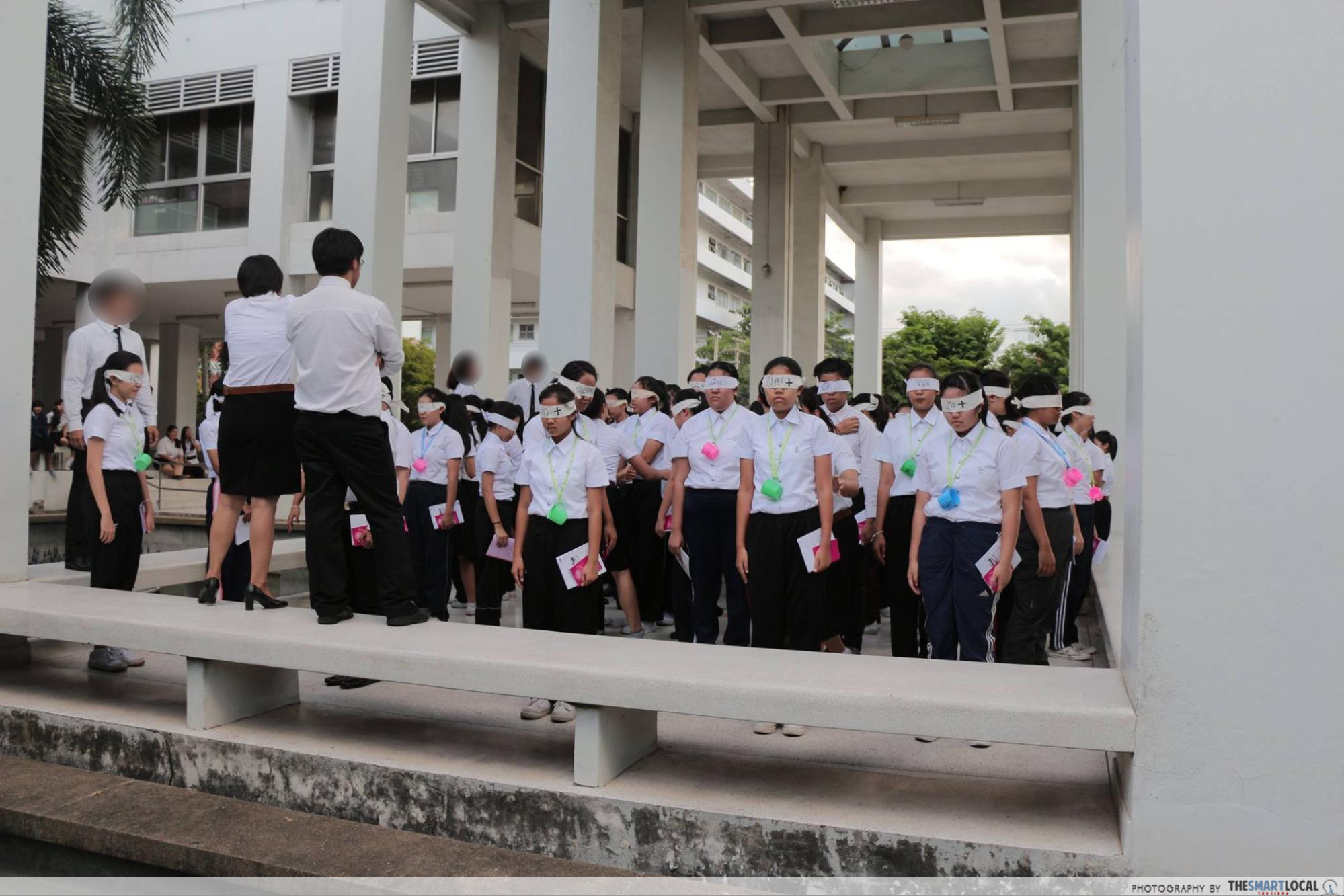
Our names were written on head cloths for seniors to remember
And although we were given the option to participate, it didn’t always feel this way. Seniors would bark the question, ‘Where are the others?’ to those present – this made many of us angry and confused as to whether we really had the freedom to do what we were comfortable with.
Questions didn’t always make sense either. Depending on their moods, older students would ask us things we couldn’t answer, like ‘Why are you looking at me?’ or ‘Why do you have that empty look on your face?’
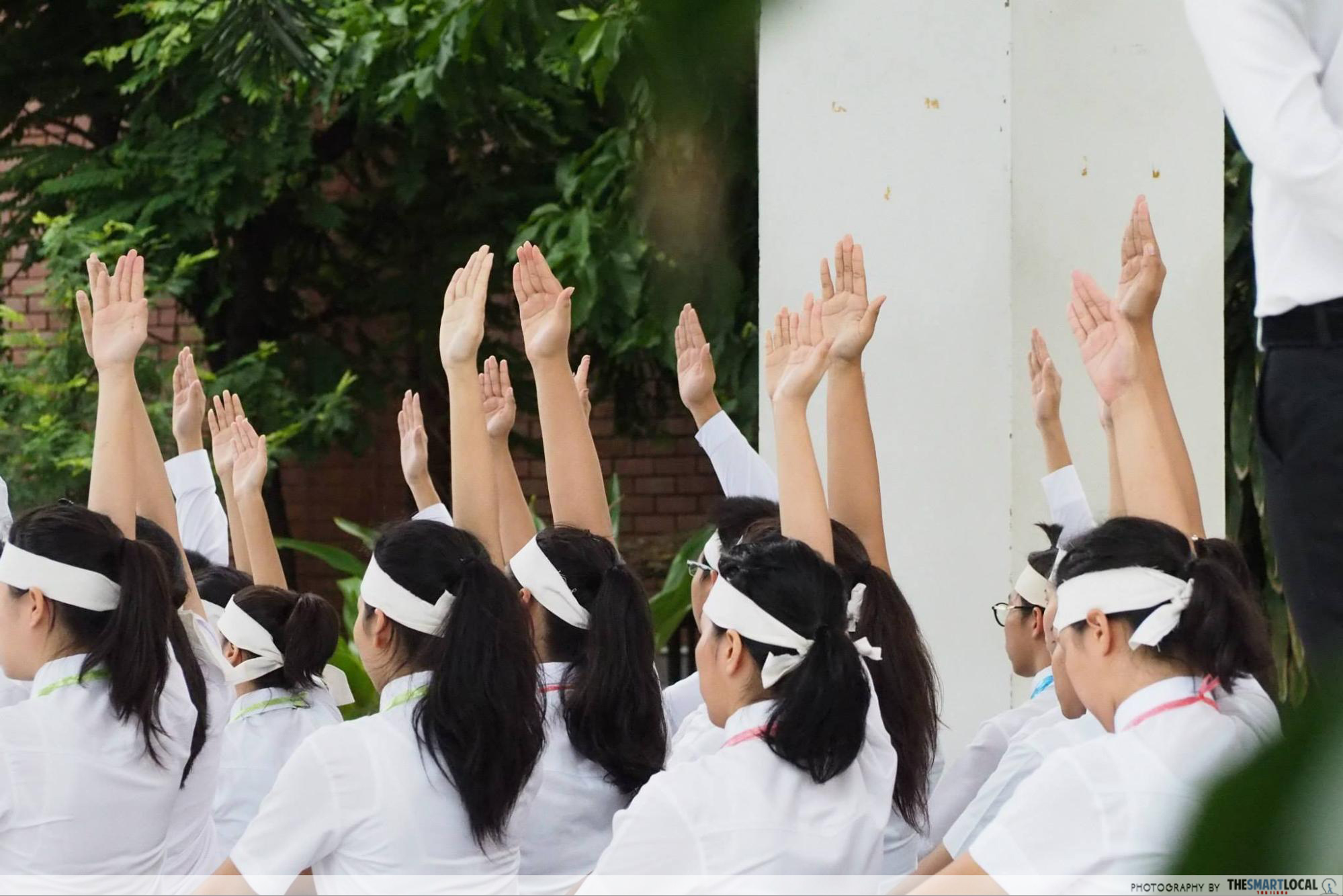
Many times, this led to freshies being punished by putting our hands up for extended periods of time, or playing uncomfortable games like group squats, where we all had to sit on each other and keep our balance to avoid falling.
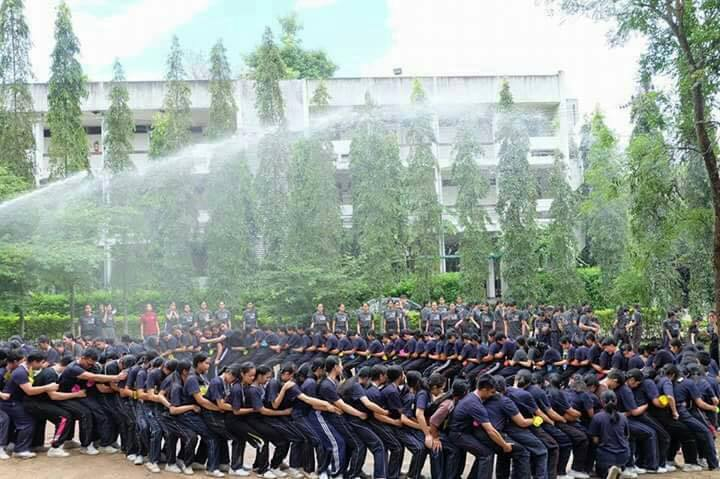
Image credit: ANTI SOTUS
What I despised the most was how we were forced to introduce ourselves to each other. Seniors would pick names at random, and those called had to stand in front of over a hundred people and shout your name and major aloud until you got their stamp of approval.
This made the act of forming meaningful connections involuntary, which made many shyer students feel awkward.
The stress quickly pushed a lot of us to our tipping point, where many contemplated quitting the programme. However, we didn’t in fear of making things worse – and so we trudged on and silently waited for everything to end.
A positive turn of events
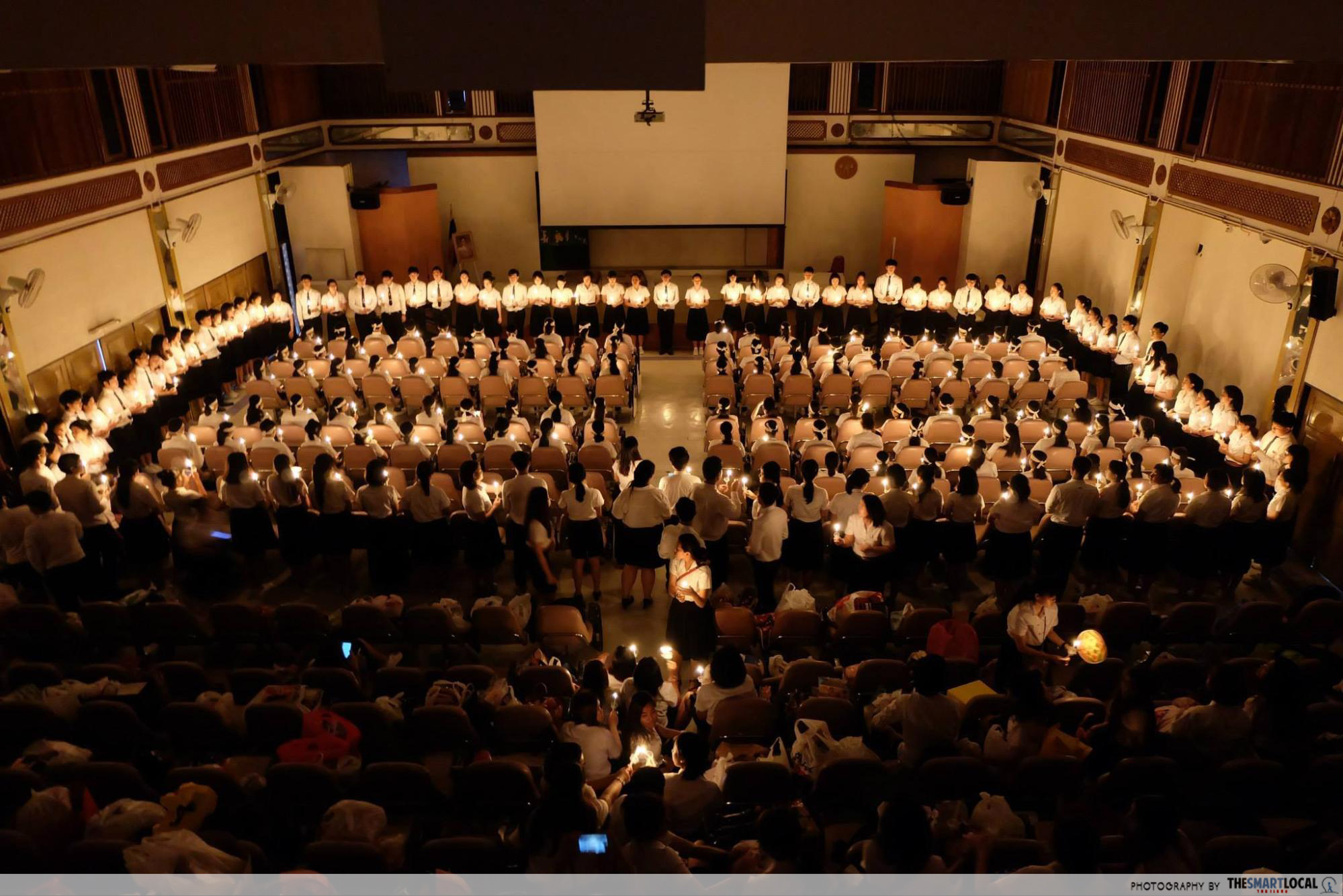
Cheer Day marked the end of the 6 long weeks, and all the songs and cheers we’d been made to memorise were all for this moment. Our seniors had us gather in the school hall in dim lights, where we held candles and talked about our experience together.
To my surprise, this was also the day we saw the true colours of our seniors. The Pee Ra Biab dropped their stern facades and were themselves, coming clean as to why they’d been so strict in the first place.
As with SOTUS, this was to ensure freshmen knew the rules and order of our university, and not to hurt our feelings in any way. I was finally able to see my seniors as fellow peers, and not as bullies which many of us were afraid they would be.
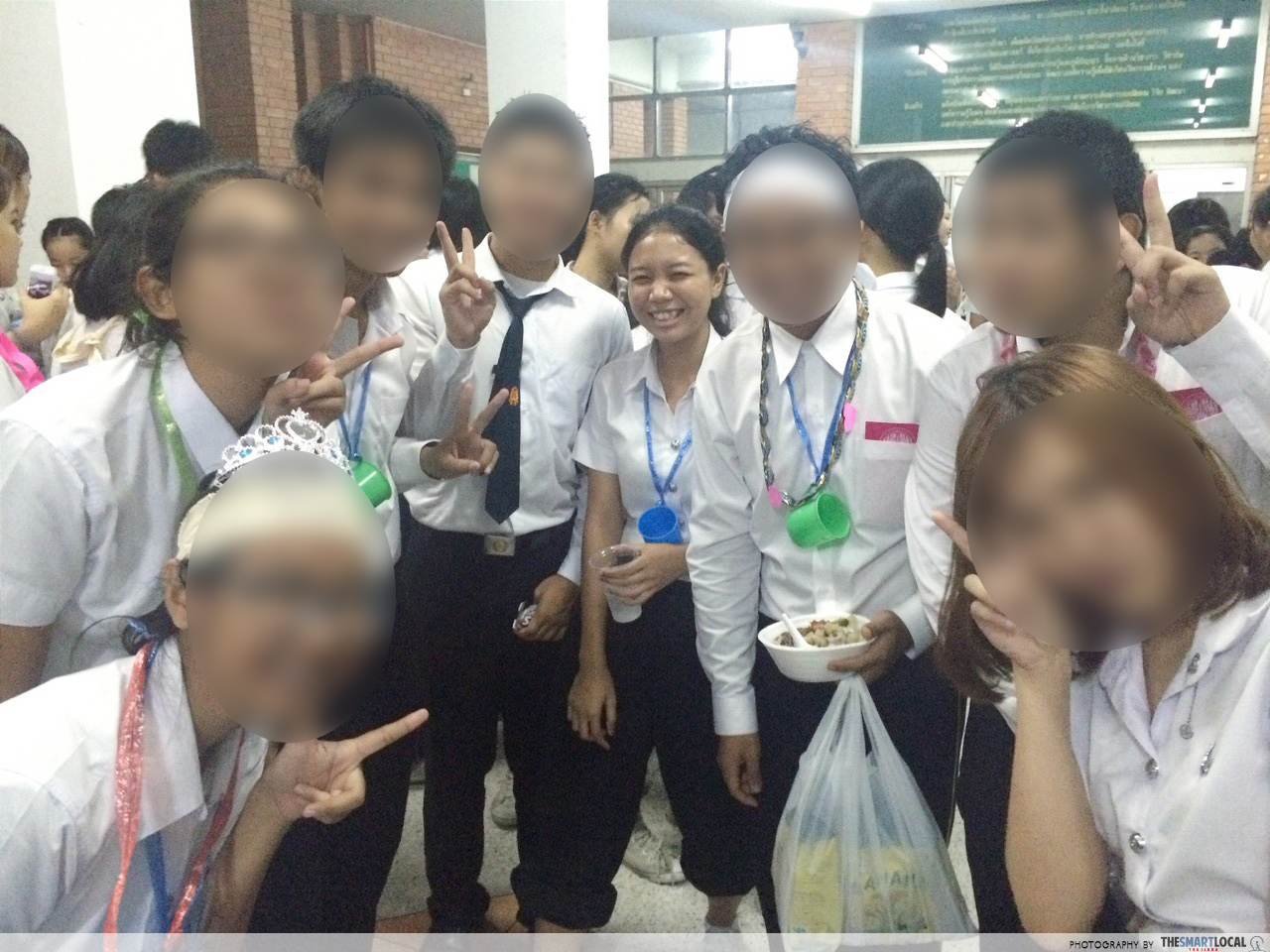
After our sharing session, we were split into “families” with selected seniors, who bought us food and gifts
What had been scary turned out to be a heartwarming experience, and I’d made unforgettable memories and friendships at the end of the day.
Despite the struggles faced during the orientation, I was still thankful that none of the activities led to serious incidents. Sure, there were times I had been upset and uncomfortable, but safety had not been an issue.
Not the case in other schools
Sadly, not everyone goes through the same experience.
There have been reported incidents of other universities implementing activities such as making students eat out of the same spoon or straw – a breeding ground for unwanted illnesses – and violent attacks against freshmen.
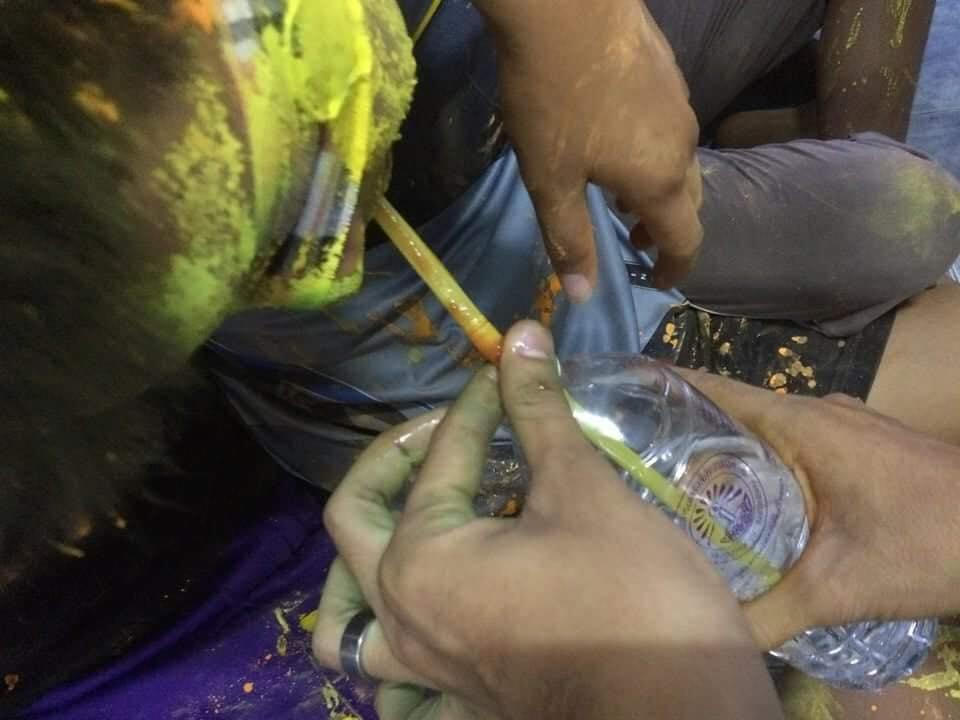
Being forced to share drinks with over 100 other people is another activity other freshies participate in. Netizens have called for such events to be abolished out of health concerns.
Image credit: ANTI SOTUS
SOTUS traditions don’t happen just at universities either. This can be seen being “inducted” in schools as early on as primary school, all the way until one graduates into the workforce.
 Phornphiphat “Nong Mint” Eaddam, who died after collapsing during her run
Phornphiphat “Nong Mint” Eaddam, who died after collapsing during her run
Image credit: Achadthaya Chuenniran
Like Mint, a first-year who passed away after being forced to run as part of cheerleading practice punishment, many others have lost their lives due to violence under the guise of “tradition” and “order”. Back in July 2019, 15-year-old Pisit Kumniw, a Matthayom 3 student in Nakhon Pathom, went into cardiac arrest after a hazing incident by a group of Matthayom 6 students. In 2014, Pokai Saengrojrat died after being kicked at the beach in a rab nong ritual. He was only 16.
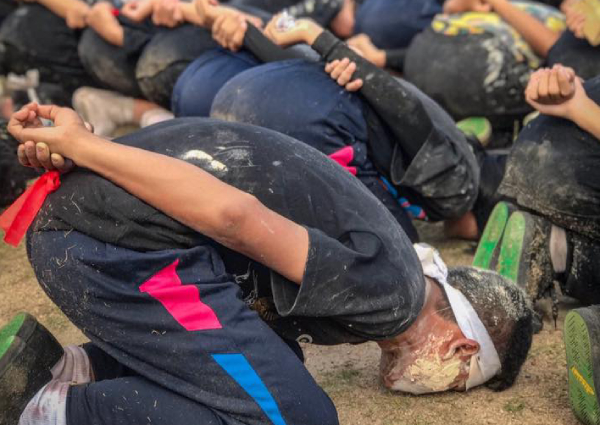
Students take part in degrading activities like kissing the ground – no “Unity” or “Spirit” here
Image credit: ANTI SOTUS
In an interview with SCMP, Mr. Keerati Panmanee, who helps run the ANTI SOTUS social media campaign, explained that these “traditions” are quick to get swept under the rug. “Teachers often turn a blind eye and many students who do the hazing think they are doing a good thing by teaching juniors respect and humility,” he said.
The younger generation is speaking up
These days, the controversy that surrounds rab nong remains a serious conversation topic among locals. While incidents still occur, it is good to see people coming forward to talk about the problematic nature of SOTUS.
Student protests have been rampant across the country in recent months, with the younger generation using their voice to talk about the injustice that goes on in schools.

Outside Thailand, such punishments could leading to serious allegations against teachers
Image credit: Tasty Thailand
Beyond hazing, students have been protesting against punishments conducted by teachers, such as cutting a child’s hair in “public shearings” if it does not comply with the rules. This is something I remember witnessing back in school as well.
Recent news reports have also covered cases of teachers punishing students by forcing them to squat with a chair over their heads, and depriving toys from a young student and destroying it.
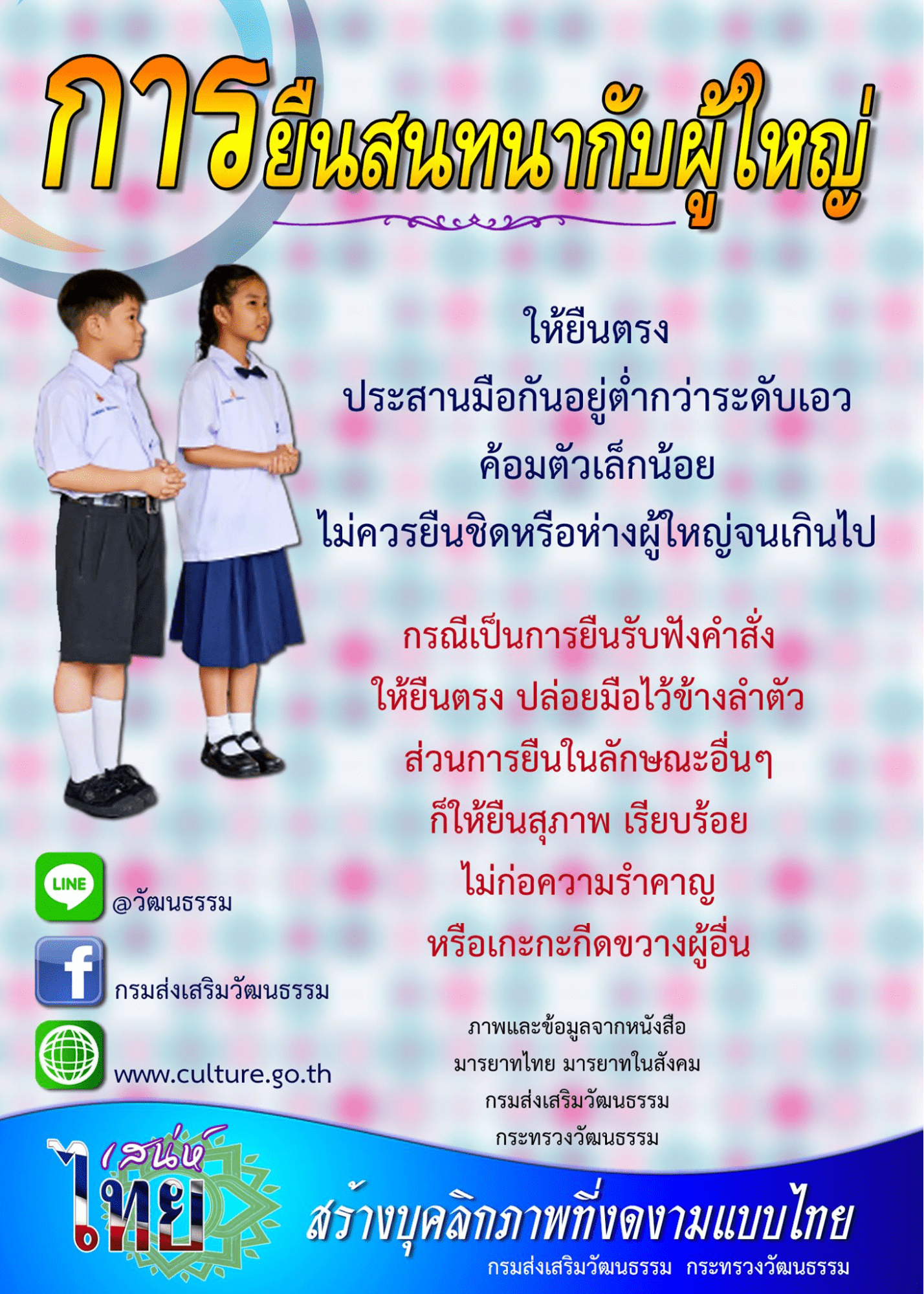 Image credit: กรมส่งเสริมวัฒนธรรม
Image credit: กรมส่งเสริมวัฒนธรรม
Like ragging “rules”, adults are left unquestioned as a sign of respect and following traditions. The Department of Cultural Promotion in Thailand even launched a poster with instructions on the “proper ways” of how to interact with poo yai (adults). This includes standing straight, having your hands below your waist, bowing slightly, and taking orders obediently.
Those caught talking back face disciplinary measures, but this hasn’t stopped students from fighting for their rights.
Time for a change
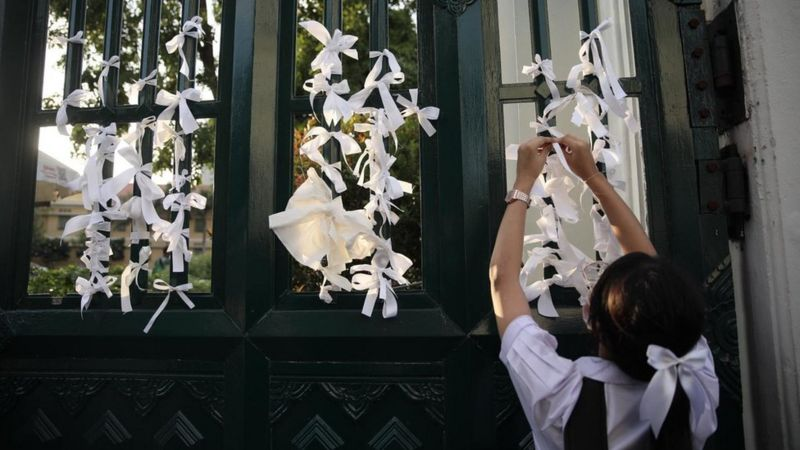
Thai students tie white ribbons outside Thailand’s Ministry of Education as part of the protests
Image credit: THAI Wasawat Lukharang/BBC Thai
Seniority is an important factor in Thai culture, and is something we must know how and when to abide by. However, though the values of SOTUS stand in good faith, it can be abused when in the wrong hands – like seniors who view junior students like “fresh meat”.
In order to make a change, we must listen to what others have to say. Universities should work towards fostering a safe and fun environment in preparation for their students, instead of allowing impressionable youths to face dehumanising activities behind closed doors.
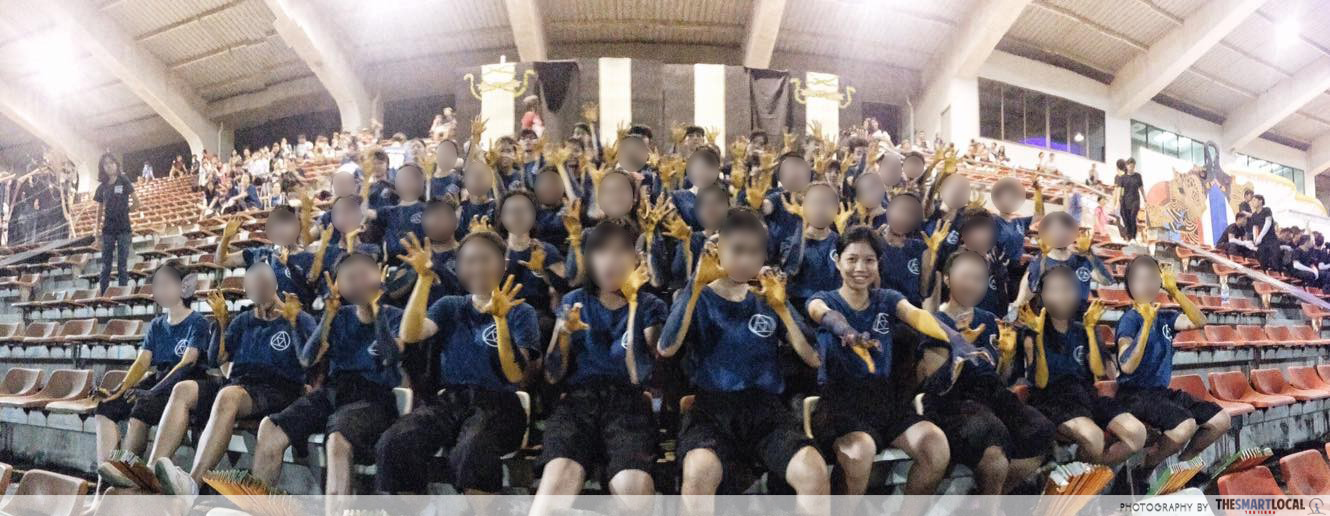
Personally, my uni’s orientation allowed me to go beyond my comfort zone and try things I had never experienced before
While not all schools promote such rab nong rituals, it is important to educate the society in order to prevent innocent lives like Mint and Pisit from being taken over pride and foolishness again.
We can only hope for the voices of today to finally mark a change and pave a better future for future generations.
Cover image adapted from: ANTI SOTUS (Left)
Enjoying The Smart Local Thailand? Follow us on Facebook and Instagram for more stories like this

Drop us your email so you won't miss the latest news.






